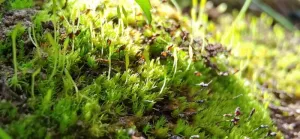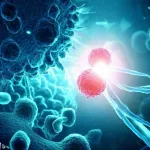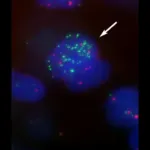(Press-News.org) New research suggests that the Horn of Africa is likely to become even drier, not wetter in the future as predicted by most climate models.
‘Wet gets wetter, dry gets drier’. That mantra has been used for decennia to predict how global warming will affect the hydrological cycle in different world regions. But if climate models predict that much of tropical Africa will enjoy a future with wetter weather, then why does it keep getting drier in certain parts of the African tropics, like the Horn of Africa? An international team of researchers have found a pre-historic climate tipping point that helps explain the disparity between these model predictions and the intensifying drought conditions in the Horn of Africa. Their new study was published in the scientific journal Nature on 10 August.
Moisture equals rainfall minus evaporation
Simply put, two main things make up how wet or dry an environment is: the amount of rainfall, and the amount of water that evaporates from the land and plants. In the tropics, higher temperatures typically bring along wetter weather due to stronger monsoons. At the same time, higher temperatures also cause more evaporation since in warmer air, water evaporates more easily.
And yet, recently parts of the world like the Horn of Africa have seen severe multi-year droughts with rising temperatures. A research team including lead co-authors Allix Baxter (Utrecht University) and Dirk Verschuren (Ghent University) have found an explanation for the disparity between climate model predictions and recent droughts in eastern Africa in the sediments of Lake Chala, located on the Kenya/Tanzania border near Mount Kilimanjaro.
Climate tipping point
“We found that, during the last ice age between 75,000 and 11,700 years ago, higher temperatures in the Horn of Africa did indeed produce a wetter climate,” Verschuren explains. “But around 11,700 years ago, when the region’s temperature naturally rose by a few degrees, we saw a tipping point in which higher temperatures led to increased drought, and lower temperatures meant wetter conditions.” This fundamental change in the relationship between temperature and moisture in the Horn of Africa, has since locked this region into a dry tropical climate regime, which the researchers expect to continue as temperatures keep rising in the future.
“This finding matches with the increasing number and severity of droughts we now see happening in the Horn of Africa,” Baxter illustrates. Quite importantly for this region where most people depend on rain-fed agriculture, the new research suggests that the Horn of Africa is likely to become even drier, not wetter in the future as predicted by most climate models. “Though it’s still debated what the cause is of these recent droughts, our research provides the clue to an underlying mechanism. Our data has revealed certain processes that we hope are better incorporated in the climate models to more accurately predict long-term future climate change in this and other tropical regions.”
This is a joint press release from Utrecht University and NIOZ Royal Netherlands Institute for Sea Research.
END
Then vs. now: Did the Horn of Africa reach a drought tipping point 11,700 years ago?
2023-08-09
ELSE PRESS RELEASES FROM THIS DATE:
Resilient biomedical scientists’ careers took a hit during pandemic
2023-08-09
First study to measure resilience in biomedical scientists during the pandemic
Sixty-one percent of study participants said they experienced a setback during pandemic
‘You can be as resilient as you want, but certain structural factors can hinder your professional advancement’
CHICAGO --- When COVID-19 presented the world with the greatest health challenge in modern history, it was biomedical scientists who stepped up to develop diagnostic testing and vaccines to slow the spread of the disease.
But how did these in-demand scientists fare psychologically and in their careers amid pandemic pressures such as juggling ...
Engineered probiotic developed to treat multiple sclerosis
2023-08-09
Brigham researchers are working on a new approach to target autoimmunity in the brain leverages designer bacteria to make treatment safer and more effective
Researchers from Brigham and Women’s Hospital, a founding member of the Mass General Brigham healthcare system, have designed a probiotic to suppress autoimmunity in the brain, which occurs when the immune system attacks the cells of the central nervous system. Autoimmunity in the brain is at the core of several diseases, including multiple sclerosis. In a new study, researchers demonstrated the treatment’s potential using preclinical models of these diseases, finding that the technique offered a more precise ...
There and back again: how neurons make room for growth in a developing organ
2023-08-09
To function properly, organs require a precise number of cells and a functional architecture, which are established during embryogenesis. Embryos are proficient multitaskers; they grow, and acquire shape and functional architecture all at once. Despite a lot of research on embryo development, scientists do not yetfully grasp how embryos orchestrate all these different tasks in space and time to ensure the formation of healthy organs. This was ...
Oldest extant plant has adapted to extremes and is threatened by climate change
2023-08-09
The rare moss Takakia has adapted over millions of years to a life at high altitudes. An international research team led by Prof. Dr. Ralf Reski from the University of Freiburg and Prof. Dr. Yikun He from the Capital Normal University / China has now discovered exactly how it has developed the ability to survive frost and life-threatening high UV radiation. In the renowned journal Cell, they describe the genetic traits that protect the moss from extreme environmental conditions. At the same time, they document how climate change greatly altered the natural habitat of this highly specialized species within just a few years.
The ...
Drinking alcohol not likely to increase risk of a breast cancer recurrence
2023-08-09
A Kaiser Permanente study provides new information that may help oncologists answer one of the most common questions they hear from breast cancer survivors: Is it safe to drink alcohol?
The new study, published August 9 in Cancer, is the largest prospective study to look at short-term alcohol use after breast cancer. The findings suggest drinking alcohol is not associated with an increased risk of breast cancer recurrence or dying from the disease.
“We know that women who drink alcohol are at increased ...
New machine-learning method may aid personalized cancer therapy
2023-08-09
FOR IMMEDIATE RELEASE
Deep-learning technology developed by a team of Johns Hopkins engineers and cancer researchers can accurately predict cancer-related protein fragments that may trigger an immune system response. If validated in clinical trials, the technology could help scientists overcome a major hurdle to developing personalized immunotherapies and vaccines.
In a study published July 20 in the journal Nature Machine Intelligence, investigators from Johns Hopkins Biomedical Engineering, the Johns Hopkins Institute for Computational Medicine, the Johns Hopkins Kimmel Cancer Center and the Bloomberg~Kimmel Institute for Cancer Immunotherapy show that ...
Childhood cancer: "New" immune system responds better to therapy
2023-08-09
(Vienna, 9.8.2023) Scientists at St. Anna Children's Cancer Research Institute and the Eberhard Karls University of Tübingen have shown that immunotherapy after stem cell transplantation effectively combats certain nerve tumors in children. Crucially, stem cells from a parent provide children with a new immune system that responds much better to immunotherapies. These results of an early clinical trial were published in the prestigious Journal of Clinical Oncology.
Childhood tumors of the nervous system, known as neuroblastomas, are associated with an unfavorable prognosis ...
2024 HFSP Nakasone Award nominations are open
2023-08-09
The Human Frontier Science Program (HFSP) has published the new call for the 2024 HFSP Nakasone Award. Until September 30th, the global scientific community is invited to submit their nominations for this prestigious award.
The HFSP Nakasone Award recognizes groundbreaking contributions and breakthrough discoveries in the life sciences. The award celebrates exceptional achievements in scientific excellence, particularly those that have propelled the boundaries of biological knowledge forward.
In its 13th ...
CAREER Award: Fixing AI’s blind spot in image analysis
2023-08-09
For all the astonishing things artificial intelligence can do, it has a particular blind spot that one University of Virginia researcher seeks to remedy.
It can’t recognize all shapes.
“Current machine-learning models lack the capability to analyze and quantify the shape of objects presented in images with complex structures and large variations, especially in the context of medical imaging,” said Miaomiao Zhang, an assistant professor in the UVA School of Engineering and Applied Science.
The models are biased toward “seeing” image textures and have limited ability ...
The protein protectors of fertility
2023-08-09
Osaka, Japan – You’re likely familiar with RNA, the molecule that plays an important role in protein production and gene expression control. Perhaps you’re less familiar, however, with PIWI-interacting RNA (piRNA), a special type of RNA that protects the genome from mutations. Now, researchers in Japan have shed light on how these critical molecules are formed by the dynamics of several associated proteins in the germline of the fruit fly, Drosophila melanogaster.
In a new study published in the Journal of Cell Biology, researchers from Osaka University have clarified how the proteins Tejas (Tej), Vasa (Vas), and Spindle-E ...







